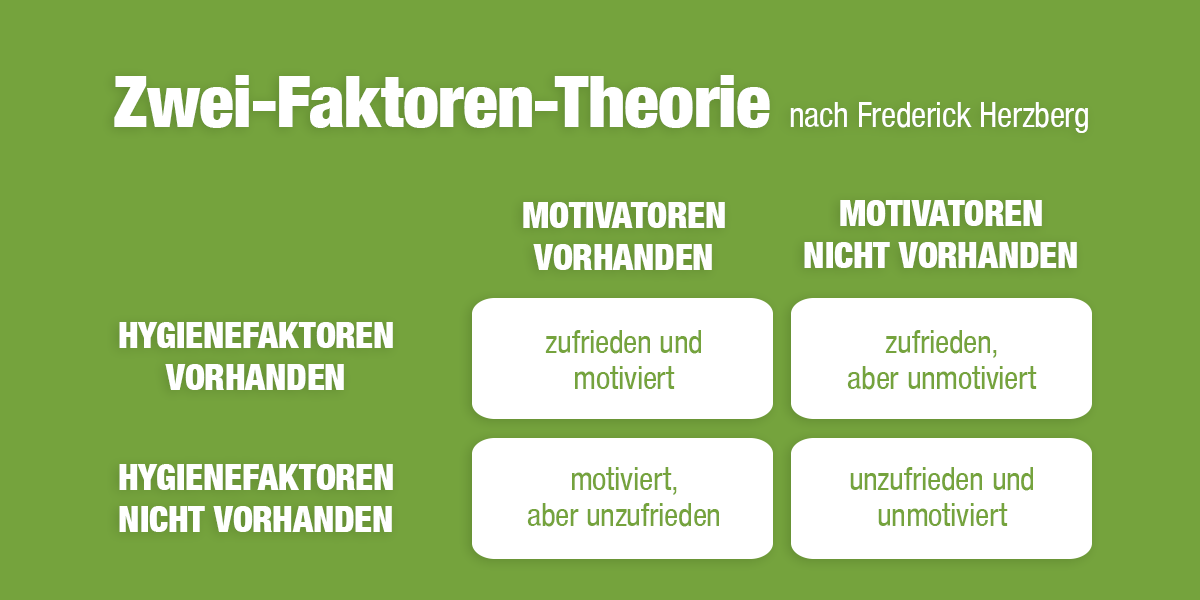Herzberg's two-factor theory. One of those wonderful theories that promise to solve the riddle of employee motivation. We're not talking about some banal theory here. No, this is the two-factor theory - the crème de la crème of motivation theories. Frederick Herzberg discovered that there are two types of factors that influence employees in their actions: Motivators and hygiene factors.
We have questions about this.

Hygiene factors: the anti-motivators
Imagine your employees sitting in an office with a dripping faucet, a heater that runs in the summer and a boss who has the social skills of a cactus. Welcome to the world of hygiene factors! These factors - such as salary, working conditions and company policy - are the necessary evils. If they are absent or poor, employees are unhappy. But if they are there? Well, then they are ... neutral. Even if all these points are perfectly fulfilled, this does not lead to happiness, but at best to a neutral "it could be worse" feeling. But according to Herzberg, that's a start.
Motivational factors: The unicorns of the working world
Now we come to the real stars of the show: the motivational factors. Recognition, responsibility, opportunities for advancement and the work itself. Herzberg says that these factors can really make us happy. Imagine this: Your employee receives praise in front of the entire team, gets to lead an exciting project and suddenly a unicorn appears in the office to present the "Employee of the Month" trophy. Well, maybe not the unicorn, but you get the idea. These factors should not only satisfy us, but really inspire us. Quite simple really, isn't it? Exactly the blanket recipe that all employers are looking for.
The practice: a reality check
The two-factor theory actually shows that the employee satisfaction mantra was already outdated in the 1960s. But isn't it true that money can also be an excellent motivator? What would sales professionals, real estate agents or vacuum cleaner salesmen say? Can't the prospect of dizzying commissions make you jump out of bed in the morning highly motivated? Or the prospect of a six-month vacation at a time? Who wouldn't be prepared to work really hard for a while?
Differentiation is the key
Herzberg assigns salary, working hours and other external conditions strictly to the hygiene factors and presents content such as responsibility and meaningfulness as motivating factors. But should we really adhere strictly to this classification? Is it really the same for everyone? We say: definitely not.
So what do we take away from Herzberg's two-factor theory? Perhaps that it is not enough to simply not be unhappy. Perhaps the Herzberg model is also a nudge for some: we often strive for these elusive motivational factors and overlook the importance of the banal hygiene factors.
But what are the hygiene and motivation factors in your own company? That's what you need to find out. The best way to do this is with a PERSENTIS analysis.
Perhaps one day we will create a working environment that offers both - perfect hygiene factors and plenty of motivation. And until then? Let's continue to work on making a small piece of this a reality.
With this in mind: stay motivated and make sure that your employees are too. Because at the end of the day, satisfied and highly motivated employees are the true capital of your company.



